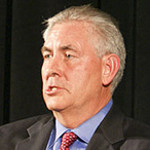Manatt, Phelps & Phillips LLP announced that Jack Quinn has joined the firm’s Washington, D.C., office as a partner in the litigation group and as chair of the firm’s federal regulatory and government practice.
“Jack is a tremendous addition,” said William T. Quicksilver, Manatt’s chief executive officer and managing partner. “His experience both in and out of government adds a further dimension to our strong national practices, serving clients who face major crises that may involve litigation, regulatory, public policy or legislative elements. Companies and individuals under government scrutiny at all levels will benefit from his exceptional legal and crisis management counsel. Jack has honed truly extraordinary skills at the intersection of law, public policy, politics and communications, and his professionalism has earned him a great reputation and great relationships across partisan political divides.”
In a news release, the firm said:
Immediately before joining Manatt, Quinn chaired Quinn Gillespie & Associates, a bipartisan public affairs firm he co-founded in 2000 to provide government relations and strategic communication services. His clients spanned the high tech, financial services and insurance, telecommunications, industrial and healthcare fields. In recent years, he also practiced law as a solo practitioner and served as co-counsel in major mass tort litigation.
“Jack is a Washington legend,” said Douglas Boggs, Manatt’s D.C. office administrative partner. “A definitive Capitol insider, he knows the executive and legislative realms from the inside out. When trouble strikes, Jack is who you want to help navigate the regulatory and political shoals inside the Beltway. We are thrilled to welcome him to Manatt.”
Quinn added, “I have long been an admirer of Manatt’s unique approach — bringing top-tier lawyering, notably in the litigation group, together with astute business consulting and strategic advocacy. This seamless combination of disciplines mirrors my own career to this point, and allows the firm to provide particularly creative, highly effective solutions for clients. The energy and engagement here are infectious, and I look forward to working with this talented team.”
Quinn’s government service includes serving as counsel to the president of the United States. In that role, he advised President Bill Clinton and senior White House staff on the legal aspects of policy proposals, legislation, and certain classified and unclassified executive actions, as well as on investigations undertaken by both independent counsel and congressional committees. At the time of his appointment as White House counsel, Quinn was chief of staff and counselor to Vice President Al Gore.
Quinn practiced law at an Am Law 100 firm for more than 20 years. Early in his career, he worked on Capitol Hill, serving on staff for the U.S. Senate Select Committee on Nutrition and Human Needs and for a member of the Senate Finance Committee.
He has served on the boards of several companies, including Alternative Packaging Systems, The Water Company, Constellis Holdings Inc. (where he co-chaired the governance and compliance committee), the Philadelphia Stock Exchange, Fannie Mae and the Robert F. Kennedy Memorial.
After earning an undergraduate degree from Georgetown University College of Arts and Sciences, Quinn received his J.D. from Georgetown University Law Center, where he was an editor of the Georgetown Law Journal.





